AFTER THE VOTE, A MORE STABLE BUT LESS DEMOCRATIC INDONESIA

On 14 February, one of the largest elections in the world took place: no less than 205 million voters went to the polls to elect the President of the Republic, representatives in Parliament and those in local councils: some 20,000 people to choose from 245,000 candidates. To understand the proportion, the United States has just over 160 million voters, the European Union, if it voted as a single nation, would have about 380 million, India a few more[1] .
There are 820,000 polling stations, spread over a territory consisting of 17,000 islands and spanning three time zones. The work is incredibly tiring: the voting operations engaged some 5 million paid volunteers, who were forced to work round-the-clock shifts due to the enormous complexity of the polling; among them, 71 died of exhaustion, while between 14 and 18 February, at least 4,000 people fell ill due to excessive fatigue. The 2019 elections went much worse, with as many as 500 workers dying of exhaustion[2] .
From the closure of the polling stations, which were open only six hours, several days will pass before the official verdict is known, which will probably not come before 20 March. However, historically reliable preliminary projections are known, which give Defence Minister Prabowo Subianto a clear lead (around 58% of the vote) over his main opponents – former Central Java governor Ganjar Pranowo and former Jakarta governor (and opposition candidate) Anies Baswedan. If the numbers are confirmed Prabowo, who holds an absolute majority, will not face a runoff.
It is a strange competition: Prabowo Subianto is endorsed by the outgoing president himself, Joko Widodo – better known as Jokowi – who can no longer run for office because his second five-year term is over, but who somehow tries to put his popularity, now estimated at over 80%, to good use. Moreover, Jokowi is running his own 36-year-old son, Rakabuming Raka, for vice-president, in violation of a constitutional principle – the lower limit for being elected is to be 40 years old – thanks to a ruling by the Constitutional Court, presided over by his uncle Anwar Usman, which, with one exception, changes the rule[3] . Jokowi’s choices sparked fierce controversy, so much so that they created deep rifts even within his party, the Partai Demokrasi Indonesia Perjuangan (PDI-P)[4] .
Widodo’s choice is paradoxical, given the profound differences between him and his successor: Widodo is a reformer, a sponsor of religious tolerance (Indonesia is a country with a Muslim majority, but where moderation and peaceful coexistence with other religious cultures reigns), he is certainly a nationalist, but a socialist and very moderate one, while Probowo, openly right-wing, has links with various radical Islamic groups and ultra-nationalist positions – as well as a very dark, even criminal past. Yet Widodo, during his term in office, included him in the government team, appointing him Minister of Defence. And now he chooses to support him in the elections, after he was his rival in 2014 and 2019.
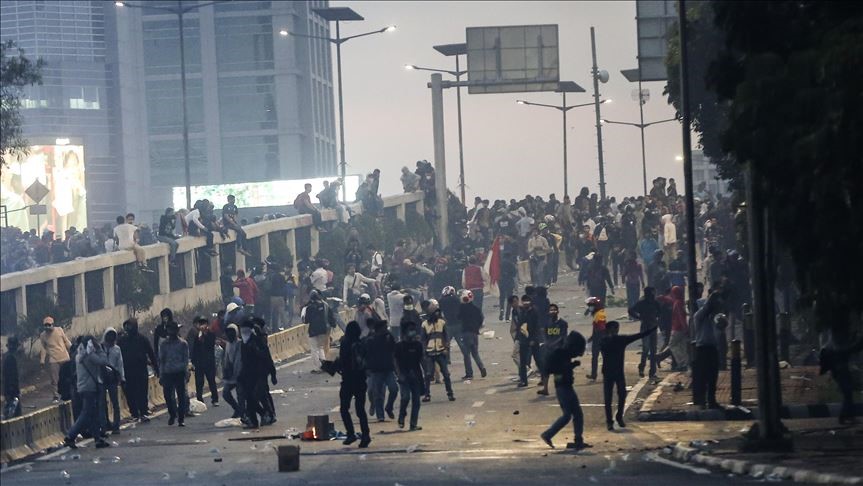
30 September 2019: demonstrations in Jakarta, hundreds injured among both demonstrators and policemen[5]
Why? It can be explained if, looking beyond the appearances of the world’s third largest democracy, one discovers that everything is based on agreements between established elites, who have little to do with democracy, but who have always practised the time-honoured practice of power sharing between families. The buying and selling of votes, persistent corruption, clientelistic power sharing – these are practices that, paradoxically, play a decisive role in maintaining stability and preserving cohesion among elites and consequent stability in the country[6] . The same multi-party composition and broad coalition (for example) in the Jokowi government, in normal democracies, should generate opposition and vetoes. Here it is expressed in slight differences, softened by handouts of power to this or that leader: a partition used to crush the ideological exercise[7] .
The election result has triggered protests by many students and pro-democracy activists: demonstrations that are likely to increase. In addition, there are complaints against officials accused of misappropriating state funds to fuel support for Prabowo[8] , complaints that are, however, very unlikely to be overturned or to result in any real prosecution by the judiciary.
The new virginity of Subianto
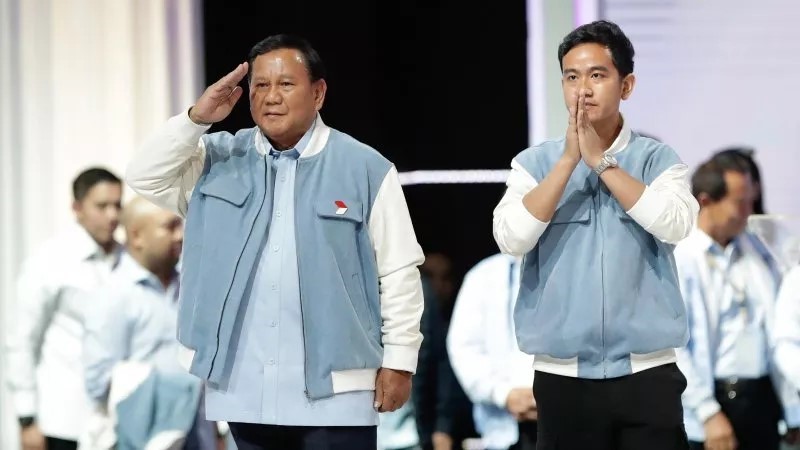
Prabowo gets anomalous support from outgoing President Widodo[9]
Prabowo’s landslide victory, barring any resounding twists and turns, will see him ascend to the presidency, and many international observers are ready to bet that this could turn out to be a step backwards for Indonesia’s young democracy. Son of the economist Sumitro Djojohadikuso, famous for having revolted against the then dictator Sukarno, he and his family were forced into exile in 1957, which gave him the opportunity to learn several languages (in addition to Bahasa, he now speaks French, German, English and Dutch)[10] . Returning to Indonesia under the Suharto regime, Prabowo enrolled in the military academy, graduating in 1974[11] . He served in the army for thirty years, becoming commander of the special forces – the infamous Kopassus military unit – at the age of 26, then becoming a general and finally head of the Indonesian army’s strategic reserve forces, the Kostrad[12] .
A supporter of the bloodthirsty dictator General Suharto (and also his former son-in-law, since he married his daughter Siti Hediati Hariyadi), he distinguished himself by his loyalty and barbarity in the terrible repressions in Indonesia’s recent history: thousands of murders, tortures, rapes. In 1988, after it was established that his military group was involved in serious crimes against political opponents, and human rights violations in Papua and East Timor[13] , he was dishonourably discharged[14] .
Yet, despite its past, Prabowo is now experiencing a new season of full rehabilitation, and this is explained by a generational issue: in Indonesia, in order to vote, one has to be 17 years of age or older, 52% of voters are under 40, a third under 30, the vote is thus mostly in the hands of young people who have not experienced the years of the ferocious dictatorships on their skin, and the former general, in recent times, with a beating propaganda has cleverly cleaned up his image, offering himself to the media as a tender cat-loving grandfather[15] . But his political orientation is no mystery: during the 2014 and 2019 election campaigns, Subianto propagated extremist positions and sympathies towards religious groups of Islamic fundamentalists. He still proudly declares himself a staunch nationalist and promoter of traditional Indonesian values.
For the sake of compromise, in recent years Prabowo has chosen to show himself with less extremist positions, so much so that in his recent rallies he talks insistently about continuity with Widodo. But it is to be understood how much of this is mere propaganda – how much he is using his new virginity to gain public support, and how much the character is really oriented towards democratic continuity.
A fragile democracy
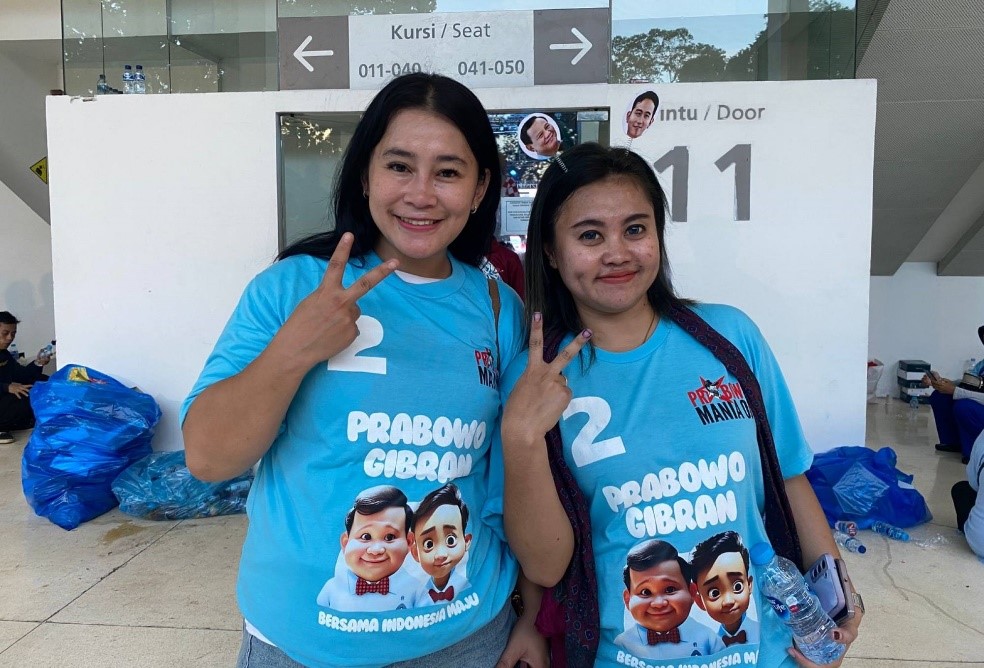
Prabowo wins over young people, promising them continuity with Jokowi[16]
Indonesia is an archipelago stretching more than 5000 kilometres, straddling South East Asia and Australia, and dominating the most important sea route of the world economy: the Malacca Straits. It is the most populous Muslim nation in the world. Rich in natural resources and cultural diversity, followers of Mohammed, Christians, animists and Hindus coexist here. And despite bloody local ethnic conflicts and the upsurge of Islamic extremism, it continues to be a country largely characterised by a tolerant and open Islam.
Democracy is a recent conquest, even if it came in a particularly tortuous way: Suharto’s bloody tyranny fell to rubble 26 years ago, thanks to the Indonesian Revolution of 21 May 1988. On 7 June 1999, the first free elections awarded a relative majority in Parliament to the Democratic Party and the first president elected by the people, the moderate Muslim leader Abdurrahman Wahid, was elected. Embroiled in a series of scandals, in 2001, just 19 months after winning the presidency, Wahid was impeached by parliament and sacked from office. He was succeeded by his vice-president Megawati Sukarnoputri, a capable and appreciated politician, but who had to reckon with trust being eroded by serious economic problems, separatist violence and omnipresent political corruption.
In April 2004, his party, the PDI-P, lost the elections to the Democratic Party: Susilo Bambang Yudhoyono was the new president. Yudhoyono had to face a very serious crisis triggered by an incredible series of natural disasters that brought the country to its knees: the earthquake and tsunami in Sumatra in 2004 and 2009, the 2010 tsunami in the Mentawai Islands and the eruption of the Mirapi volcano, in the centre of Java Island, in the same year. Despite the disasters, thousands of deaths and hundreds of thousands of displaced persons, GDP grew by more than 6% annually between 2010 and 2012.
New scandals and acts of corruption hit some PD officials and cause a new crisis during 2013. In the 2014 elections, the able Yudhoyono gives way to Joko Widodo, but the shadow of the occult powers never leaves the running of the country. The massacres of the 1960s profoundly marked the political system: since then, there is no longer a moderate or radical left, in its place are moderate formations such as the Democratic Party of Struggle or the Democratic Party. Dozens of Islamic or nationalist parties were born, which strongly influenced the political process, both nationally and locally, and were the only real opposition in the country.
Indonesia as the literary Leopard
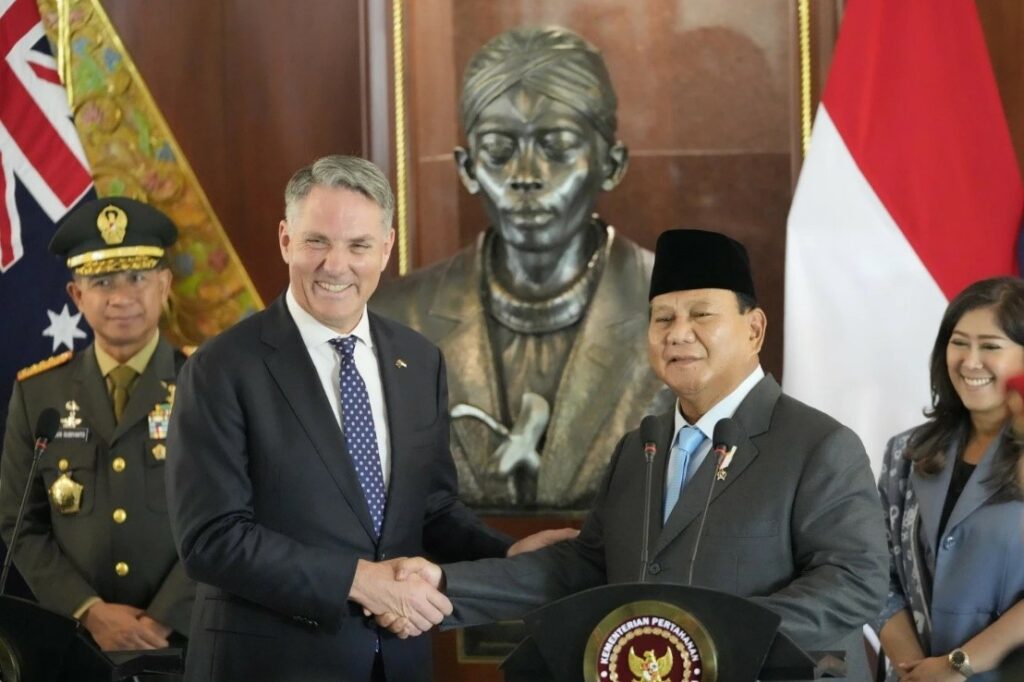
Jakarta, 23 February 2024: Prabowo and Australian Defence Minister Marles sign military agreement[17]
Does Indonesia therefore risk backtracking on the difficult democratic path? Despite Prabowi’s track record, the absence of clear political distinctions between parties will continue to foster power-sharing cronyism among elites. The absence of clearly defined programmes in this election campaign is no accident: it is the exercise that annihilates party lines, overwhelmed by ‘informal’ power. The families who have held power for decades are the ones who will continue to dictate the same agenda as always, having exclusive access to state resources and working to soften the bad mood of the losers with partisanship.
The shyness in addressing economic issues speaks volumes. Indonesia is home to vast and wealthy Chinese bourgeoisies, the daughters of immigrants from southern China, who over time have become professionals, merchants, entrepreneurs, and real businessmen who lead important economic conglomerates that influence political life – but become the scapegoats of social tensions in periods of serious crisis, such as between 1997 and 1998. Today, the relationship with China, a central issue for a fast-growing country that bases its economy on natural resources but has a serious infrastructure deficit, is at the centre of the political clash: Widodo is distinguished by a policy of total openness to Chinese investors, while for Prabowo this has never been the priority.
The former general’s duplicity emerges in this latest election: although he is stingy in making statements on the details of his future plans, on foreign policy Prabowo is unstinting: he wants a ‘rebalancing’ whereby the nation should ‘learn from Eastern countries such as Japan, South Korea, China and India’ on how to eradicate corruption, improve education, promote strong labour discipline and show national pride. “The West teaches us democracy, human rights… but the West has different standards from ours,” says Prabowo. “There is a change in the world. Now we don’t really need Europe anymore’[18] .
He therefore suggests that the road will be increasingly one of greater closure with the West and greater openness with the East, including China, although he is not at all clear on the economic aspects, which are not even touched upon in his statements. We shall see. What seems a foregone conclusion to many observers will be his line on military matters: during his tenure as Defence Minister he has pushed for a significant increase in defence spending, which suggests that he aims to turn the country into a regional power[19] . This is why, after snubbing the West’s sense of democracy, he hastens to chase it: just nine days after the elections, on 23 February, Prabowo shakes hands with Australian Defence Minister Richard Marles: the Indonesian leader declares that ‘Indonesia and Australia hope to sign a “very significant” defence cooperation agreement within two to three months’[20] .
Indonesia remains a special case, in which the worst distorting practices of the system function as a calm to anti-democratic drifts: it is embarrassing to hope for their preservation in order to see a large country preserve its stability, not least because the geopolitical stability of a vast area depends on it. But these are the dystopias often found in countries with a troubled history that, without hiding it, still carry with them the bitter seeds of Western colonialism.
JPN033
[1] https://www.euronews.com/2019/05/25/eu-elections-2019-country-by-country-guide-on-what-to-look-out-for
[2] https://www.bnnbloomberg.ca/indonesia-says-71-election-workers-died-from-exhaustion-1.2036488
[3] https://www.theguardian.com/australia-news/2023/oct/17/joko-widodos-son-can-run-for-indonesian-vice-president-after-controversial-court-ruling
[4] https://www.channelnewsasia.com/asia/indonesia-jokowi-megawati-soekarnoputri-prabowo-subianto-pdip-presidential-elections-3877721
[5] https://www.aa.com.tr/en/asia-pacific/indonesia-250-injured-649-detained-in-jakarta-riots/1598786#
[6] https://thediplomat.com/2023/10/explaining-indonesias-political-stability/
[7] https://thediplomat.com/2023/10/explaining-indonesias-political-stability/
[8] https://www.scmp.com/week-asia/politics/article/3251920/indonesia-election-2024-polls-close-race-defence-minister-prabowo-subianto-favoured-win
[9] https://www.huffingtonpost.it/esteri/2024/02/11/news/prabowo_dopo_jokovi_indonesia_al_voto_tra_scandali_nepotismi_radicalismi_politici_e_religiosi-15112756/
[10] https://www.aa.com.tr/en/asia-pacific/who-is-prabowo-subianto-the-ex-general-claiming-victory-in-indonesia-s-presidential-elections/3139946
[11] https://www.aa.com.tr/en/asia-pacific/who-is-prabowo-subianto-the-ex-general-claiming-victory-in-indonesia-s-presidential-elections/3139946
[12] https://www.internazionale.it/notizie/junko-terao/2024/02/19/prabowo-subianto-presidente-indonesia
[13] https://www.aljazeera.com/news/2024/2/16/who-is-prabowo-subianto-the-man-likely-to-be-indonesias-next
[14] https://www.reuters.com/article/idUSKBN0EU0XC/
[15] https://www.theguardian.com/world/2024/jan/09/indonesia-election-prabowo-subianto-rebranding-kidnapping-accusations
[16] https://www.scmp.com/week-asia/politics/article/3251920/indonesia-election-2024-polls-close-race-defence-minister-prabowo-subianto-favoured-win
[17] r https://apnews.com/article/indonesia-australia-defense-coopeation-9a1acd2b546b45ddbf1eba3558e3db74
[18] https://www.scmp.com/week-asia/politics/article/3251920/indonesia-election-2024-polls-close-race-defence-minister-prabowo-subianto-favoured-win
[19] https://www.scmp.com/week-asia/politics/article/3251920/indonesia-election-2024-polls-close-race-defence-minister-prabowo-subianto-favoured-win
[20] https://apnews.com/article/indonesia-australia-defense-cooperation-9a1acd2b546b45ddbf1eba3558e3db74


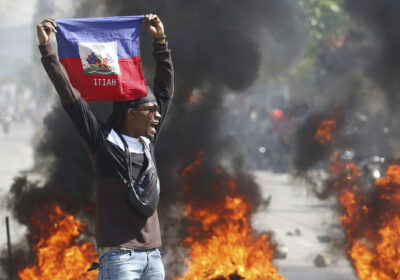

Leave a Reply